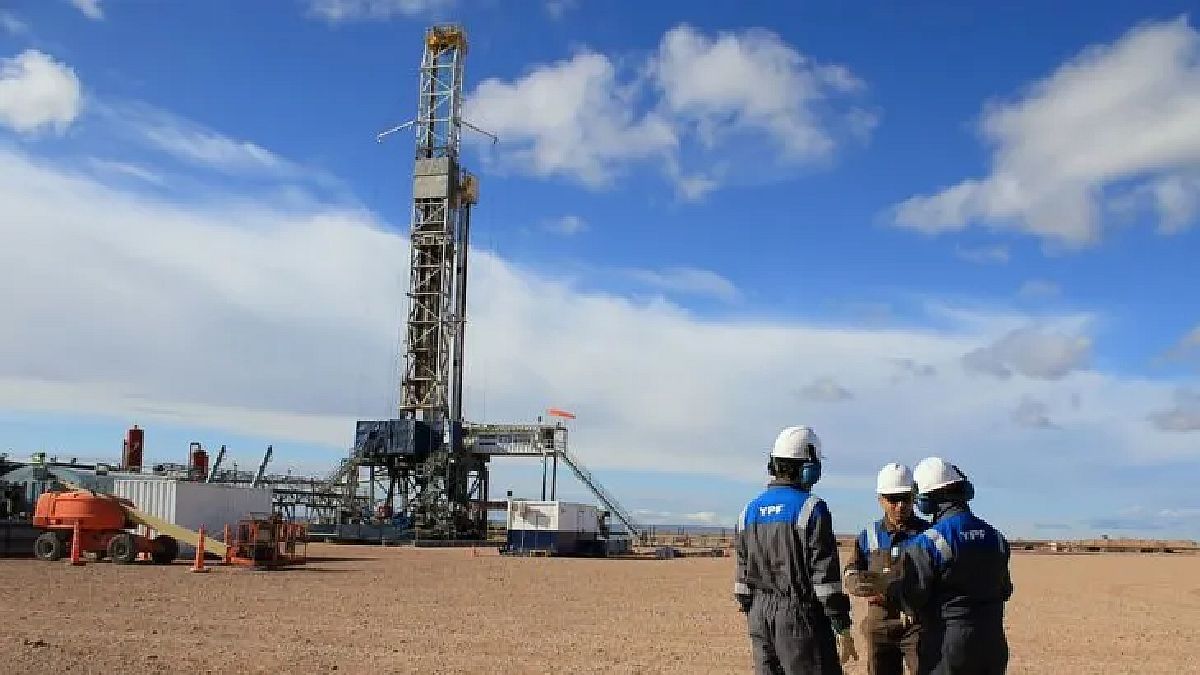The oil unions sealed a new 25.6% salary increase for March and a review of the values of February that raised the increase in the two-month period to 69.1%reaching a record figure for the period, despite the “ceiling” that the Government tries to impose as a mechanism to stop inflation.
The agreement was reached in Ministry of Labor with the presence of the country’s main unions and the Chamber of Hydrocarbon Exploration and Production (CEPH) and the Chamber of Special Oil Operations Companies (CEOPE).
Oilers achieved an increase of 287% in the 2023/2024 parity
In this way, the 2023/2024 joint venture of the oil sector will culminate with a total increase of 287%. According to the C5N.com portal, the unions also agreed to charge a non-remunerative sum of 30.7% for the month of April 2024. This figure will be calculated based on the basic salary for April 2023 and will be exempt from the payment of Earnings.
“The resulting existing percentage difference between the variation from April 2023 of the CPI index to March 2024 (which amounted to 287.5%)and the parity increase rate granted in the same period (which amounted to 218.4%), is 69.1%which will be applied in accordance with the parameters and scope established in said agreement,” states the minutes of the agreement signed in the last few hours.
Rafael Guenchenenof the Private Oil Tankers Union, the Private Oil and Gas Union of Santa Cruz, considered that “this achievement takes on greater relevance in the current context, with the refusal to sign joint ventures at high percentageswhich made it difficult discussion and forced the unions to stand”.
“The Board of Directors thanks the affiliated colleagues for their support, and the body of Delegates for the support and commitment with which we work every day to preserve and defend the rights of each of our constituents,” they highlighted from the unions of Hierarchies of Neuquén and Río Negro.
In addition to Guenchenen, during the signing of the joint agreement they were present Marcelo Rucci (Union of Private Oil Tankers of Río Negro, Neuquén and La Pampa), Jorge Avila (Union of Private Oil Tankers of Chubut), Gabriel Barroso (Argentine Federation of Oil, Gas and Biofuels Union), Manuel Arevalo (Union of Hierarchical Oil Workers of Neuquén and Río Negro), José Lludgar (Hierarchical Oil Tankers Union of Southern Patagonia), Julian Matamala (Union of Hierarchical Oil Workers of Cuyo and La Rioja) and Juan Pablo Capon Rows (Union of Hierarchical Oil Workers of Salta, Jujuy and Formosa).
Once the negotiation for the current joint venture is completed, the unions demanded that the discussion be opened immediately to establish the path of salary guideline 2024/2025.
Oilers raise alarm over Income Tax
Meanwhile, oil tankers raise alarm bells due to the recent debate around the Income Tax. Rumors about the possibility of establishing a minimum around the $1,800,000 monthlyequivalent to $1,494,000 netwithout considering deductions for spouse or children, have raised concern both among workers in the sector and in the oil provinces, particularly in Patagonia and the south of Buenos Aires.
Gabriel MatarazzoTreasurer of the Argentine Federation of Oil, Gas and Biofuels Unions (FaSiPeGyBio), expressed his concern in this regard, warning about the implications it could have on the sector and workers.
According to Matarazzo, the income tax represents “an adjustment to worker productivity, highlighting the tensions that this measure generates among employees in the sector.”
“At a time when the purchasing power of the income of the majority of the population is seen to be fading and companies are suffering a significant drop in sales, setting the non-taxable minimum at such a low floor will only do intensify the collapse in consumption,” he added.
Source: Ambito




